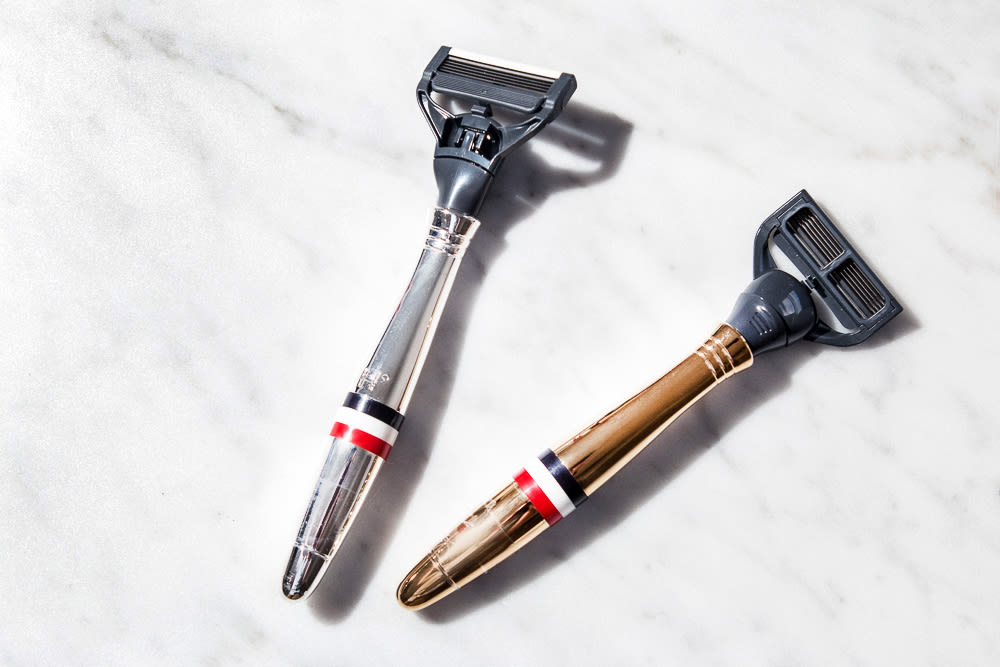I always thought being a teenage girl was a particularly unpleasant, albeit temporary, affliction. That being said, I admit I’ve never been a teenage boy.
I vividly remember this one day (I remember it because I had just stepped out of an acupuncture session and got immediately smacked out of the very real free-to-be-you-and-me sense of calm that inevitably follows a trained professional sticking needles in my stomach) when my then 18 year old brother called me from college, distraught. Mind you, he never calls me, so I knew something really had to be up. He had shaved his face and now his skin was angry—red, itchy, irritated, and peppered with ingrowns. I was used to shaving and had my own fair share of ingrowns, but this was different—facial skin is thinner and much more sensitive than the skin, say, in my pits. My pits are also not usually on display to the world. I tried as best I could to talk him down. Step one was scheduling a facial so he could have a professional deal with the ingrowns, and step two was ditching the aftershave. It would only make it worse!
“The goal of aftershave is to calm the skin down after a sharp blade has potentially microscopically scraped or injured it,” says board-certified dermatologist Dr. Flora Kim. I reached out to Dr. Kim, known for helping her patients cut through misinformation in skincare, to make sure the advice I was giving was sound. And in theory, yes, aftershaves should be soothing—for centuries, barbers have used them to encourage wound healing by preventing infection. Once razors got a little more advanced and men started shaving at home, aftershave became less necessary. Yet, the aftershaves continued to show up on shelves, with the most luxurious ones newly accented with heavily scented alcohol to kill bacteria and make men smell nice and fancy. And therein lies the problem.
“Astringent may result in a stinging sensation right after shaving and can be too harsh,” says Dr. Kim. Plus, if your skin is feeling raw, the last thing it needs is a dunk in fragrance! While they smell nice, both natural and synthetic fragrances can cause irritation on sensitive or sensitized skin. Instead of reaching for an aftershave out of habit, it helps to first think about the things you want to accomplish. If you have thick, curly, or wavy hair and are particularly concerned about ingrowns, gently dissolve dead skin the night before you plan to shave with an AHA like glycolic acid. On the day of, freshly cleansed skin and a new blade will help prevent infection. (Bonus: for an ingrown-free shave, Dr. Kim notes that nothing beats the simplicity of a super sharp blade.) Remove the hair as normal, coddling your face with a rich shaving cream and rinsing your razor blades often.
Then, as your “aftershave,” apply a moisturizer. Any ol’ one will do! “Unless there is a clear need to follow with astringent, I would guide towards putting on a simple, no nonsense moisturizing cream to minimize risk of irritation on freshly shaved skin and restore the skin barrier,” says Dr. Kim. Not only will it feel good (no more stinging!), it’ll also keep your skin from experiencing the kind of reaction my brother had. “Any product that soothes and hydrates the skin will work well… and actually better than a traditional aftershave,” Dr. Kim adds. And with that final piece of advice, I became the most valuable player on my family’s skincare team—with one teenage boy left in the sibling line up, I’m ready for my next emergency.
—Ali Oshinsky
Shop Dr. Kim’s favorite no-nonsense “aftershaves”:
Photo via ITG

